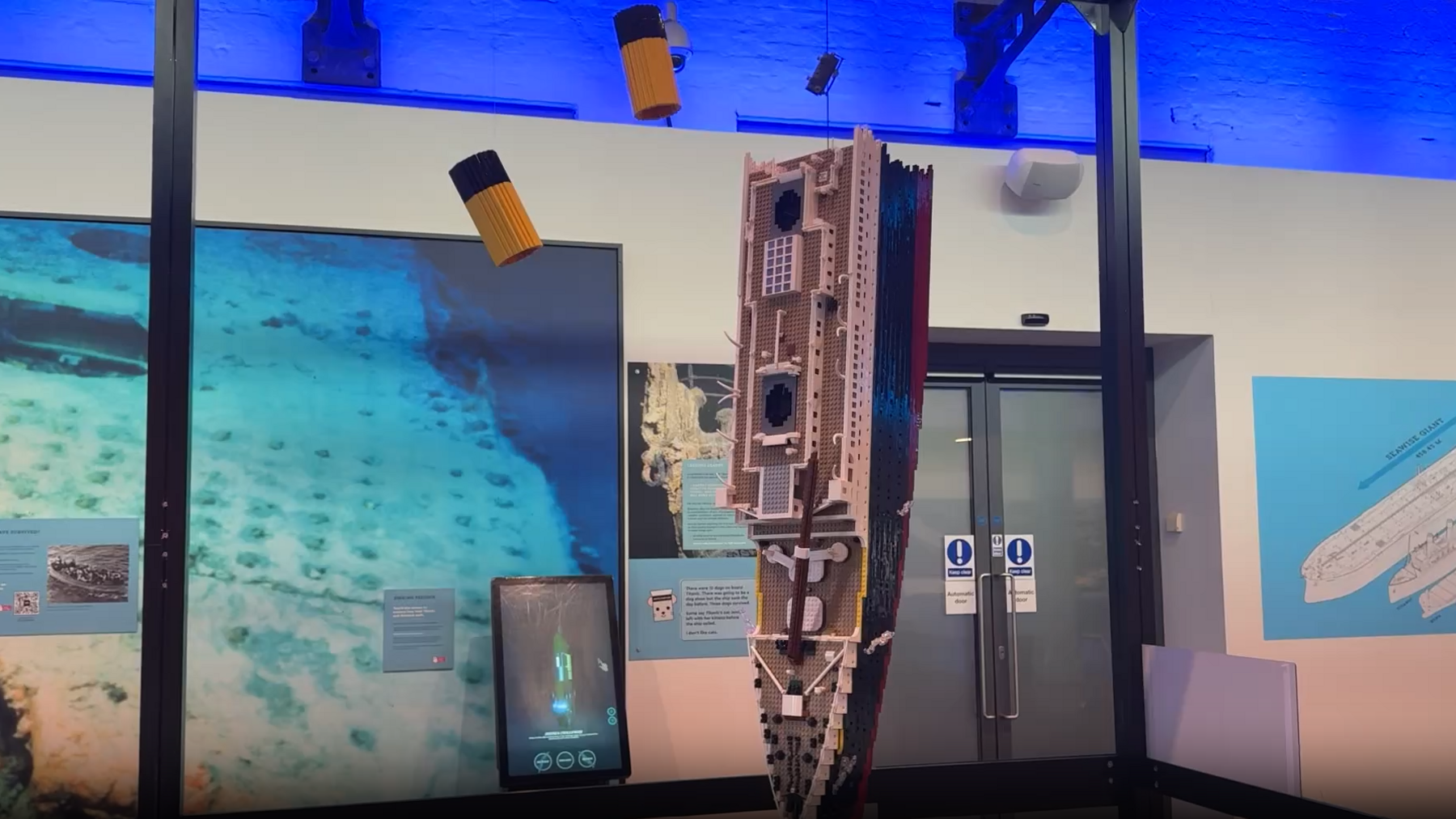Lego display marks 200 years since Roman discovery
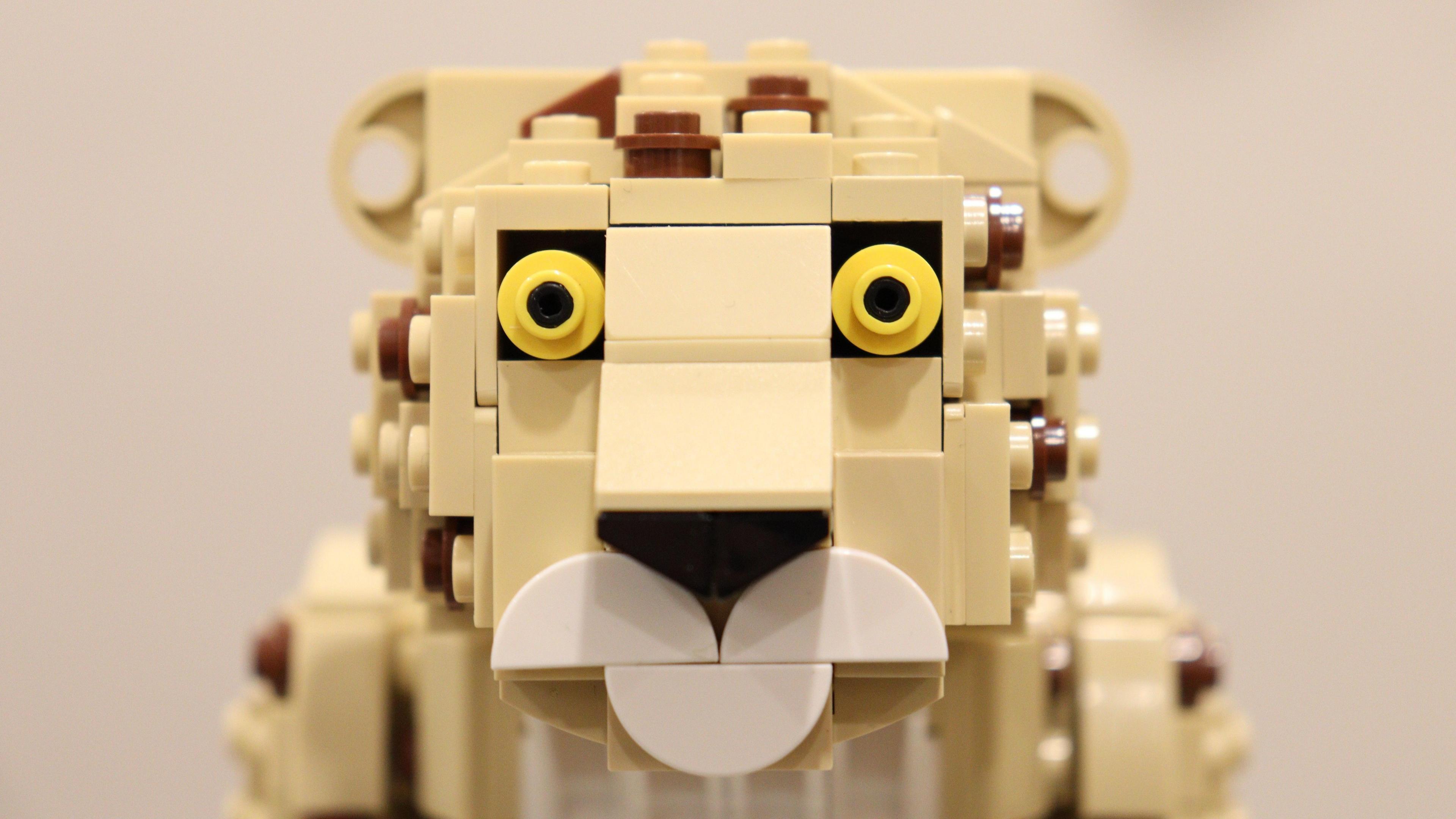
The trail at the Corinium Museum will run until November
- Published
Mythical creatures and animals made of Lego are gracing a museum to celebrate the anniversary of a Roman mosaic's discovery.
The Corinium Museum, in Cirencester, launched its Brickus Orpheus Trail on 15 April, which is part of the Project Orpheus partnership event between the museum, the Barn Theatre, and New Brewery Arts.
Organised to mark the 200th anniversary of the discovery of the Orpheus mosaic at Barton Farm in Cirencester, external, the event will run until 2 November.
Mythical creatures, animals, gods and goddesses made of Lego are dotted around the trail.
According to the museum, the mosaic was discovered in either 1824 or 1825.
Thanks to his musical talents, Orpheus was said to be able to charm everyone and everything, from gods and goddesses, to animals and stones.
The mosaic shows animals flocking around him.
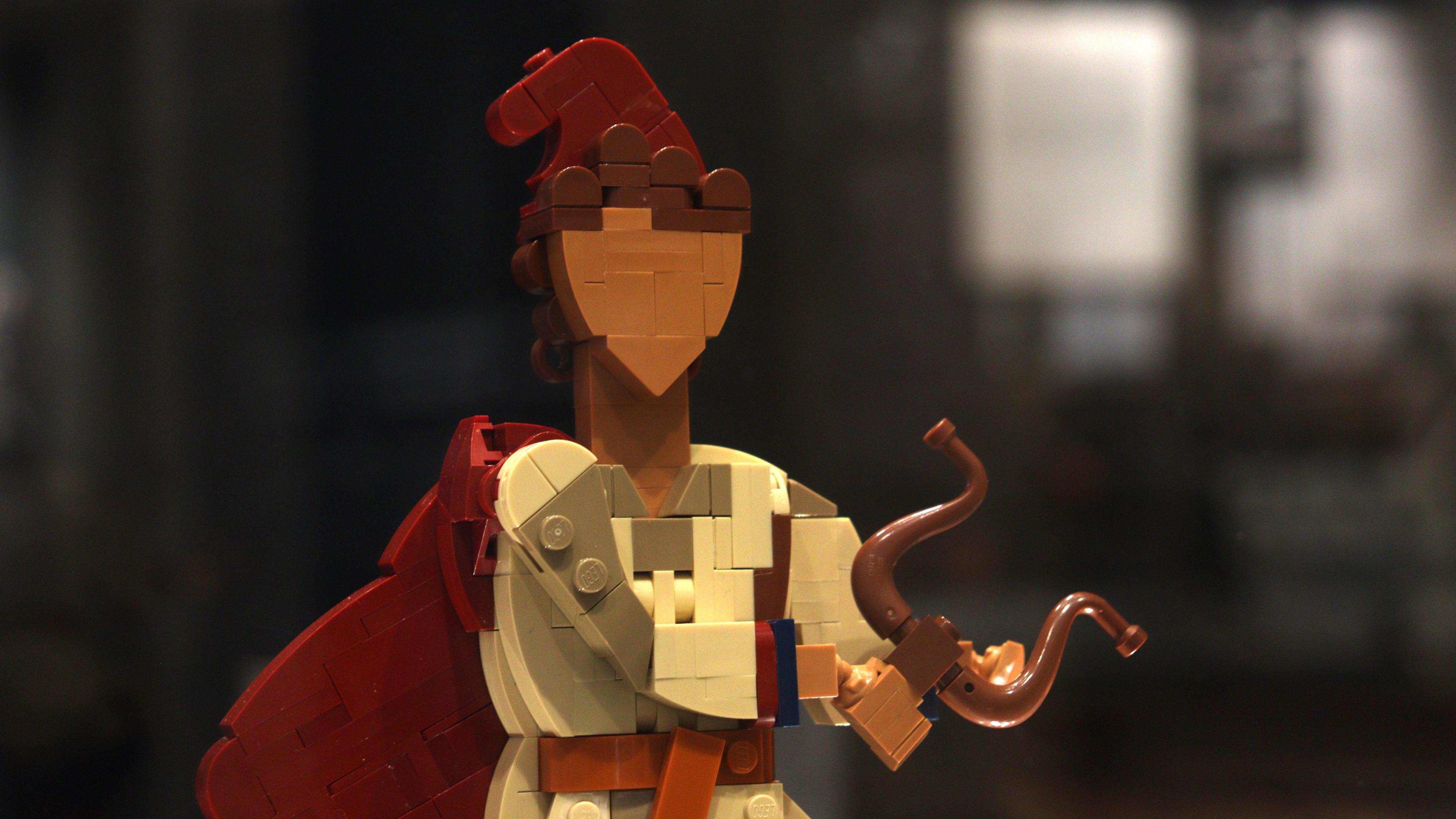
A Lego figure of Orpheus, who is wearing a cloak and hat, and is holding a lyre
Emma Stuart, director of the Corinium Museum, said the Orpheus Trail explored the myth of Orpheus and his journey to the underworld.
"This is an exciting opportunity for our visitors to connect with Orpheus in a very contemporary way," she said.
The Lego trail also features a figure of Orpheus' wife, Eurydice, who he tried to bring back from the dead with his music.
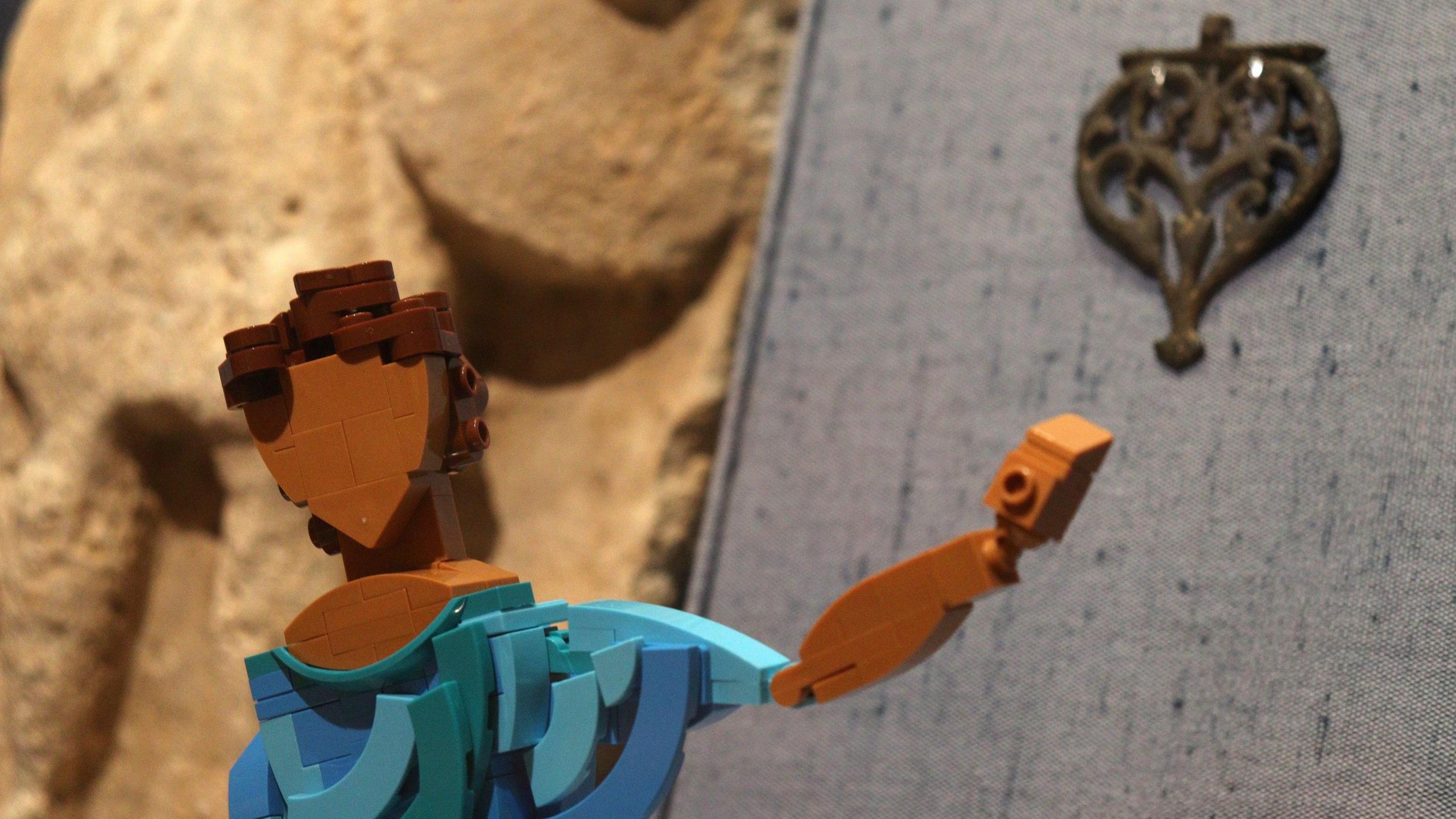
A Lego figure of Eurydice from Greek mythology
The museum has also launched new workshops for schoolchildren based on Greek and Roman myths, as part of the project.
Project Orpheus is funded by a grant from the National Lottery Fund, and a series of events will take place throughout the year at the Corinium Museum, the Barn Theatre and New Brewery Arts.
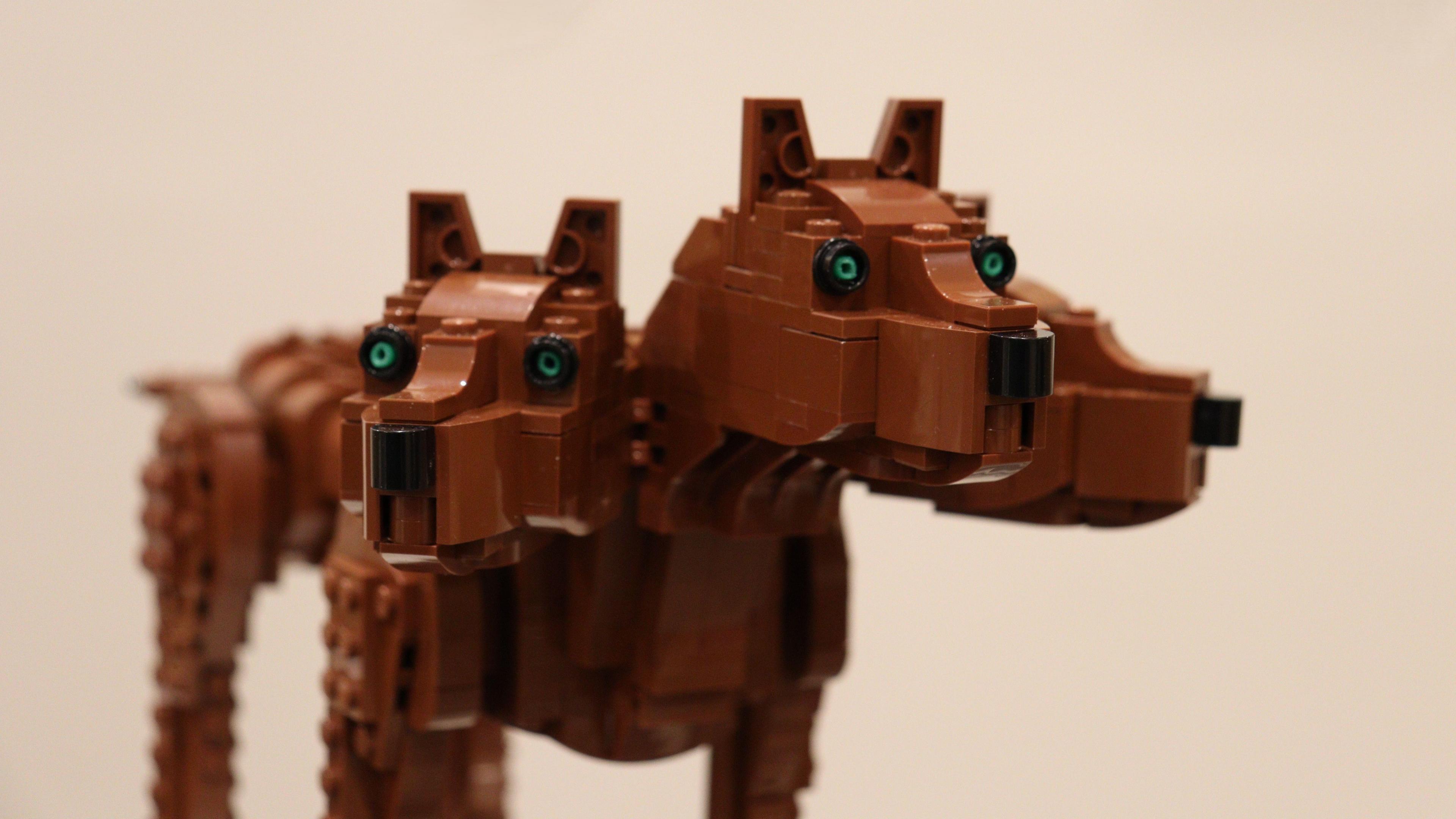
A Lego figure of a brown Cerberus, a three-headed dog from Greek mythology
Get in touch
Tell us which stories we should cover in Gloucestershire
Follow BBC Gloucestershire on Facebook, external, X, external and Instagram, external. Send your story ideas to us on email or via WhatsApp on 0800 313 4630.
Related topics
- Published14 April
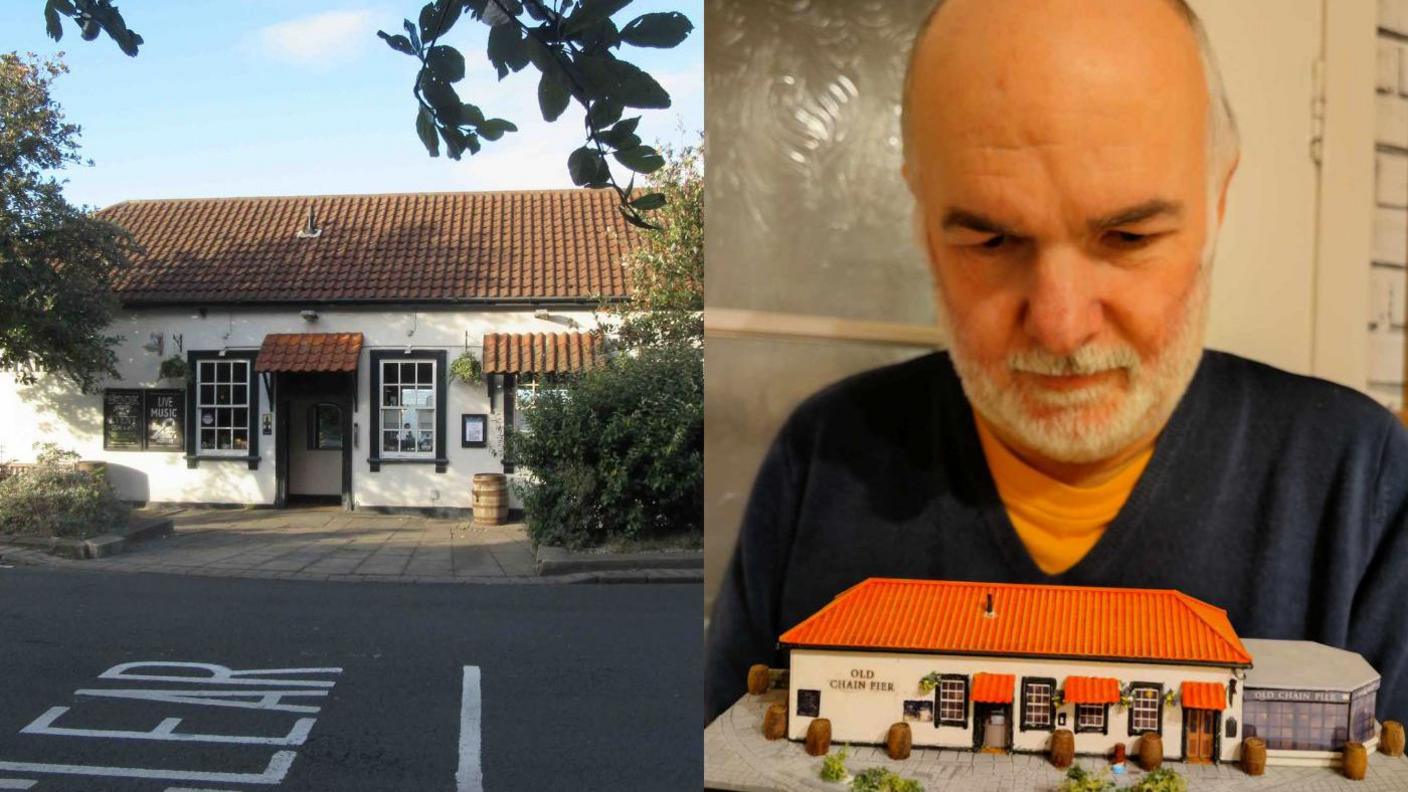
- Published6 April

- Published7 March
